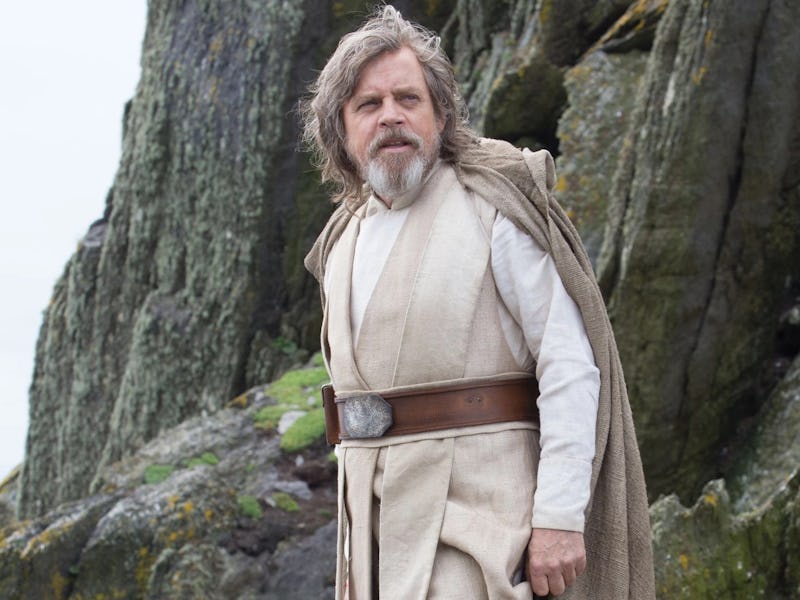5 years later, Rian Johnson reveals the genius of Luke Skywalker’s death
So now it’s all settled.

The Last Jedi is to Star Wars fans what religion and politics are to a dinner party. Everyone has their opinion, and they’re probably passionate ones, but the subject is best avoided entirely. But there’s one person who can’t avoid Last Jedi discourse: Director Rian Johnson. It’s been five years since the film’s release, but he’s still being asked about it.
Johnson, understandably, isn’t backing down from his defense of the film. In fact, he recently offered new insight that may change the way you view Luke Skywalker.
In an interview with Empire promoting his Knives Out sequel Glass Onion, Rian Johnson was articulate and unabashedly enthusiastic about The Last Jedi, claiming he’s even more proud of the film now than he was five years ago. In particular, he focused on how the movie reflects on Star Wars’ mythical status in American culture, and the ancient tropes that inspired the saga in the first place.
“The ultimate intent was not to strip away – the intent was to get to the basic, fundamental power of myth,” Johnson said. “And ultimately I hope the film is an affirmation of the power of the myth of Star Wars in our lives.”
Luke’s final showdown with Kylo Ren in The Last Jedi.
If you recognize the term “power of myth” there, it’s actually the title of a 1988 miniseries depicting conversations between mythologist Joseph Campbell and journalist Bill Moyers filmed at Skywalker Ranch. Throughout their discussions, ancient myths are analyzed and compared to the original Star Wars trilogy, with Luke’s story compared to the “Hero’s Journey” archetype.
One of the most controversial choices in The Last Jedi was how it depicted the epicenter of the Star Wars universe, Luke Skywalker. The Last Jedi took on the challenge of wrapping up Luke’s story, which has been part of Star Wars since day one. Johnson says he was well aware of the task before him, and he thought at length about how to conclude Luke’s mythical journey.
“The final images of the movie, to me, are not deconstructing the myth of Luke Skywalker, they’re building it, and they’re him embracing it,” Johnson said. “They’re him absolutely defying the notion of, ‘Throw away the past,’ and embracing what actually matters about his myth and what’s going to inspire the next generation.”
In The Last Jedi, we no longer see Luke in the “hero” position. Much like Obi-Wan Kenobi and Yoda before him, he’s become the elderly mentor. According to the archetype, losing a mentor provides an essential emotional beat for the hero, who is now Rey. While the Hero’s Journey is a cycle, the Mentor’s road is usually a one-way trip. Johnson implied that Luke understood the role he would have in the Jedi’s future, and he was at peace with not being the star of the show anymore.
The demise of Luke Skywalker in The Last Jedi.
What does this mean for Luke Skywalker’s character? The original trilogy is rife with classic character archetypes, but the fragmented development of the sequel series muddied the waters. Johnson’s comments, however, show that he was thinking about how Luke could finally come to terms with the past, and his life as a hero.
The final moments of Luke Skywalker’s life may seem like they come out of nowhere, but they follow the mythological archetype that shaped Luke’s journey, and Star Wars in general. Luke had his time as the beloved hero. By the time The Last Jedi rolled around, the moment had come to step aside and inspire the next generation to perform heroism too.
Star Wars: The Last Jedi is now streaming on Disney+.